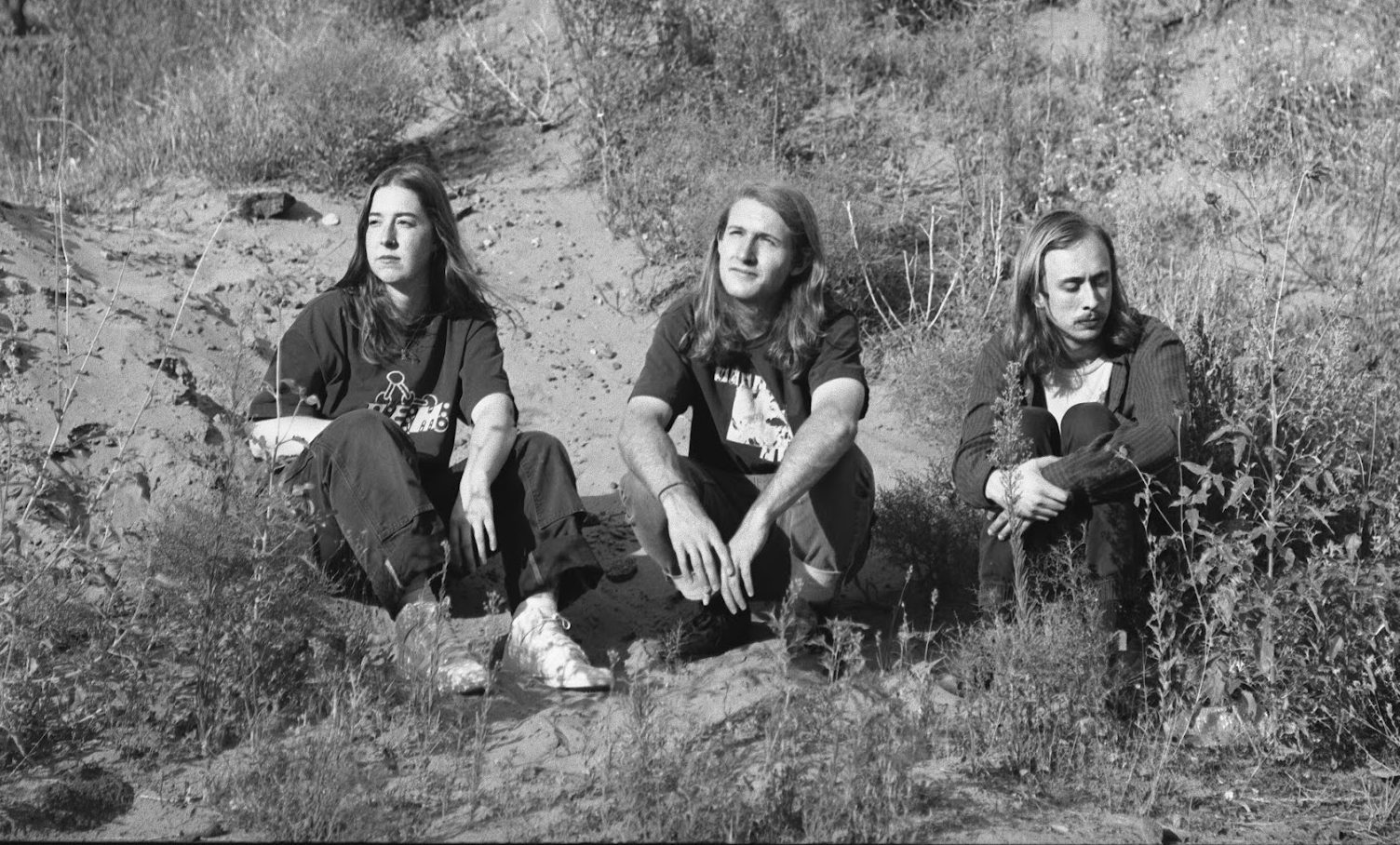Jake Beitel’s mom knew.
When Beitel’s band, Greynier, parted ways with its singer and second guitarist in the early days of the pandemic, he was unsure whether he could take on the duties of lead singer—although he’s been playing music since he was in elementary school, he’d never sung in a band before. But Beitel’s mother never shared these doubts.
“My mom was always like, ‘Jake, you’ve got a beautiful voice,’” the Minneapolis musician says. “I’m like, ‘You’ve never heard me frickin’ sing.’ She just thought I did, or something.”
Resetting as a trio, the newly renamed Prize Horse released Welder, their first EP, in January via the Chicago-based label New Morality Zine. As with Greet Death or Cloakroom, a streak of emo-indebted, fatalistic melancholy runs through Prize Horse’s glacial, metal-adjacent instrumental approach. Beitel’s tuneful vocals help distinguish the EP both from a crowded field and from Greynier.
Even though Prize Horse was less than a year old when they made Welder, it sounds like the work of people who’ve been playing together for years—because it is. Beitel, bassist Liv Johnson, and drummer Jon Brenner formed Greynier while Beitel was in high school and the other members were in college. They released a single and an EP, and they were planning to put out an album through New Morality Zine in 2020, which they shelved after the lineup shift.
Prize Horse is a fresh start, but it’s also a continuation and a refinement.
“It is a different band, but I’d say we get the same release out of it,” Beitel says. “It feels like for a while I’ve been practicing to put all my favorite aspects of music into one area, and it feels like this is a pretty good representation of where that’s at right now.”
The pandemic afforded the “new” band ample time to develop songs and hone their approach without pressure to gig, and Beitel tested his voice through the process of writing and home-recording.
“I kind of isolated myself and just tried to track stuff and get it to sound in a way that I was cool with,” Beitel says. “You’ve just got to realize it’s all practice. Especially with singing, it’s all just trying to get in the right mindset and setting a vibe with yourself.”
Ultimately, Beitel found a new mode of self-expression and an additional facet of his songwriting. He’s hoping to record more by the end of the year.
“The main thing is just writing an album,” Beitel says. “I’m chipping away on that. A lot of how I’m doing it is me sitting down with an acoustic guitar and trying to write a melody and a guitar part at the same time, and find some lyrics with that. That feels really good to me.”
Bands of Prize Horse’s ilk tend to get called “heavy shoegaze” because they build a warm wall of fuzz with relatively gentle vocals even when the rhythms pound. But more recent bands in this vein have departed from pioneers like My Bloody Valentine and Slowdive or even shoegaze-y metal like Deafheaven by bringing massive low-end to the table—the bass often takes up as much space, and provides as much of the fuzz factor as the guitar.
“We’ve had the internal discussion a lot too, like, technically it is, like it’s influenced by a lot of those bands,” Beitel says, “but I wouldn’t say tonally it’s exactly that.”
It’s not that it isn’t one thing, it’s that it’s so many things. You could probably take a nap to Welder, but you could also probably throw it on after an album like Pallbearer’s Sorrow & Extinction without breaking the mood.
In his songwriting, Beitel tries to recombine the sounds he likes while working hard to avoid obvious choices.
“I start with chords,” he says. “A stupid pet peeve of mine is when bands reuse chord progressions and chord shapes all the time… I honestly think that contributes to a lot of what people call modern-day shoegaze, is these specific chords that people use.”
Beitel’s search for the unexpected is also evidenced in Welder’s pre-release single, “3 Tiles,” which shifts halfway through from a stately trudge to a dreamy syncopated groove, then into a slow, heavy breakdown. Beitel and Brenner are roommates, and you can hear it. Prize Horse’s process starts with Beitel showing his guitar ideas to Brenner to create drum parts; a structure as fluid as the one in “3 Tiles” doesn’t materialize without some comfortable, lived-in communication between the players.
Prize Horse recorded Welder in May 2021 with Corey Coffman of Gleemer, and the sessions were Beitel’s first time recording vocals with somebody else. Beitel’s confidence at the microphone increased with Coffman’s encouragement.
“He taught me a lot about getting in the right headspace,” Beitel says, “and trying to feel the lyric that you’re singing and living in the song literally.”
In another departure from some of Prize Horse’s influences, they worked to emphasize the vocals, rather than bury them as another instrument in the mix, and tried to make melodic hooks with them.
“Me and Corey were like, ‘Let’s make it kind of catchy,’” Beitel says. “So you can hear the vocals and understand the words.
“People like that, you know what I mean?”






